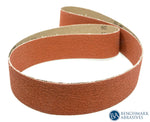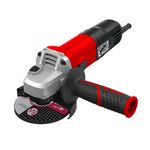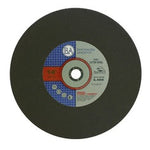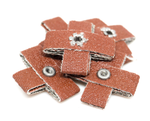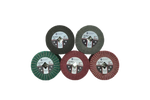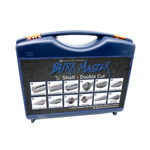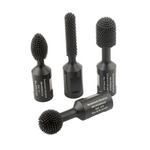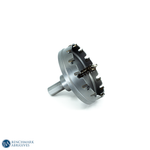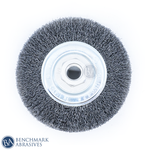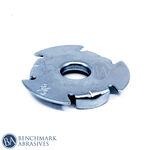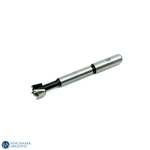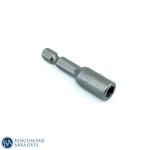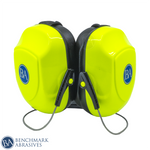
When to Use a Spade Drill Bit

A spade or paddle bit is also known as a wood-boring bit. This is one of the most common types of drill bits used to drill holes in wood, plywood, and other materials.
Spade drill bits are flat with a sharp-edged center point and two lips and spurs to cut and drill through all types of wood. As the spade bit rotates in a spiral in the wood, instead of drilling through the material, so use spade bits to drill perpendicular holes.
When to Use Spade Drill Bits
Spade bits are used for multiple applications, the most common use of which is to drill rough holes in wood. Therefore, if you want to drill a large number of rough holes in a short amount of time, you can use a spade bit.
Spade bits are available in a variety of sizes to meet different needs. Most spade bits have a larger size than the twist drill bits. Therefore, if you want to drill a larger diameter hole, you can use a spade bit.
Spade bits exist in smaller sizes. Therefore, most woodworkers use spade bits instead of twist drill bits to drill 1/4" holes, as twist drill bits can result in a lot of tear-out, while spade bits are comparatively less.
- Use a spade bit to drill large diameter holes
- Use a spade bit to drill several holes in less time
- Use a spade bit to drill flat bottom holes
- Use a spade bit to drill only rough holes
- Use a spade bit to drill multiple size holes
When Not to Use Spade Drill Bits
If you want to drill angled holes, do not prefer using a spade bit. Spade bits don't work well on angled areas, as they are designed to drill only perpendicular holes. Never even think of using a spade bit when you want to drill through hard materials like metal, concrete, tile, or glass. Drilling through hard metals can damage your spade bit or cause it to break, although some specialized spade bits are capable of drilling through thin metals and hardwood materials.
A spade bit is not good for drilling a partial hole (where the center point of the bit drills through the wood and is visible). Experts recommend not using a spade bit to make smaller holes larger because it can damage the hole. Therefore, it is not a good idea to enlarge the existing hole with a spade.
- Do not use a spade bit to drill angle holes
- Do not use a spade bit to drill hard materials
- Do not use a spade bit to drill through metals
- Do not use a spade bit to drill clean or smooth holes
- Do not use a spade bit to drill partial holes
Read More: Spade bit vs drill bit
What are Spade Bits Coated With?
Initially, spade bits were produced without any protective coating, and even today, uncoated spade bits are the most commonly used spade bits. However, coatings do not contribute in any form to the performance of a spade bit, but they further increase drill bit cost.
The protective coating can extend the spade bit's life as it provides corrosion resistance strength that allows the drill bit set to be stored for a longer time.
Spade drill bits are mainly coated with titanium nitride and black oxide coating.
Titanium nitride
Titanium nitride (golden color) is a strong coating that protects the spade from corrosion. Titanium nitride coating is mostly used on drill bits that will be used to cut metal and other hard materials. However, sharpening the drill bit can remove the coating.
Note: Titanium nitride spade drill bits are more expensive.
Black oxide
Black oxide (black color) is an iron-based coating that protects the spade from corrosion, although it has a lower wear resistance than titanium nitride. The black oxide coating is mostly used on drill bits that will be used to cut wood, plastics, wood, and other less hard materials.
Note: Black oxide spade drill bits are less expensive than titanium nitride.
Spade Bit Applications and Tips
Spade drill bits are designed for drilling holes in both treated and untreated wood. They are most commonly used by electricians and plumbers to drill through wooden boards, plywood, electric boards, plastic and copper pipes. Some additional applications of spade drill bits are-
- To install wires, an electrician must drill through a wall stud.
- Plumbers install copper or PVC pipe by drilling through wall studs and top plates.
- Drilling for wires through floor beams.
- Drilling Foundation Plate with Treated Plates.
Benefits of Spade Bits
Here are some benefits of using spade drill bits:
- Efficiency and speed: Spade bits are specially designed to drill quickly, particularly when making bigger holes. This makes them perfect for projects requiring quick turnaround time.
- Versatility: The spade bits are specially designed for drilling wood, but they can also work with softer metals and some polymers.
- Economical: Spade bits are more affordable compared to other drill bits.
- Easy to use: spade bits are easier to use, particularly for beginners, and also a good choice for experienced DIYers.
- Suitable for bigger holes: spade bits are highly recommended for drilling bigger holes that cannot be drilled with standard bits.
A. Can a spade bit be used on plastic?
Yes, a spade bit can be used on plastic. Spade bits are perfect for drilling through plastic, wood, and plywood. They can easily cut and drill precise holes through them.
When drilling through plastic, drive the drill at a slow speed and be very careful. You may also have to sand the edges after drilling.
When drilling through wood, drive the drill at high speed to prevent the drill bit from getting stuck into the workpiece.
B. Can a Spade Bit be Used on Metal?
No, a spade bit can't be used on metal. Spade bits are designed to cut and drill through soft materials such as wood and plastic, not any metal. Some spade bits can cut thin or soft metals, though you won't get satisfactory results.
Wood drill bits cannot work as metal drill bits. There is a difference between wood drill bits and metal drill bits.
C. Can You Use a Spade Bit on the Drywall?
Yes, you can use a spade bit on drywall. Drywall is a soft material, and spade bits can drill through any soft material, whether it's drywall, plastic, or wood. Spade bits can also be used to cut hardwoods such as medium-density fiberboard (MDF), plasterboard, and plastic-laminated wood.
D. Can You Use a Spade Bit on Aluminum?
No, you cannot use a spade bit on aluminum. It may damage your spade bits. Aluminum is a flexible metal, but it is surely stronger than many other materials. Aluminum also has a low melting point, so a cobalt drill bit would be perfect for drilling into it.
E. Can You Use a Spade Bit on Fiberglass?
No, you cannot use a spade bit on fiberglass. High-speed drilling with a spade bit can damage your workpiece. You can use HSS drill bits to drill through fiberglass, polyvinyl chloride, and soft metals such as aluminum, brass, titanium, and copper.

